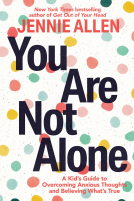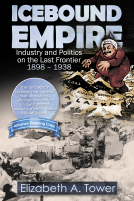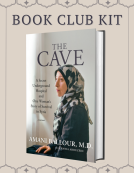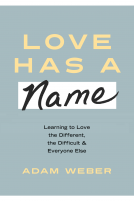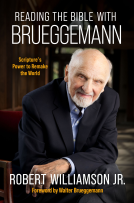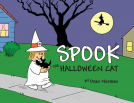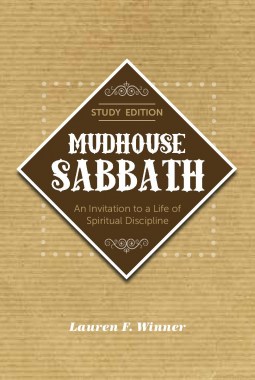
Mudhouse Sabbath
An Invitation to a Life of Spiritual Discipline - Study Edition
by Lauren F. Winner
This title was previously available on NetGalley and is now archived.
Send NetGalley books directly to your Kindle or Kindle app
1
To read on a Kindle or Kindle app, please add kindle@netgalley.com as an approved email address to receive files in your Amazon account. Click here for step-by-step instructions.
2
Also find your Kindle email address within your Amazon account, and enter it here.
Pub Date Aug 28 2015 | Archive Date Oct 20 2015
Description
Advance Praise
Available Editions
| EDITION | Paperback |
| ISBN | 9781612614533 |
| PRICE | $18.99 (USD) |
Average rating from 4 members
Featured Reviews
 Conrade Y, Reviewer
Conrade Y, Reviewer
Christianity have roots in Judaism. They read the Torah or Pentateuch. They celebrate the Tehillim, (songs of praise), also known as Psalms. Like the Proverbs and Jobs, the Psalms are part of the wisdom writings called the Ketuvim. As a convert to evangelical Christianity, the author often reflects back on her Jewish upbringing and fondly cherishes the rituals, the rules, and the meaning behind the Jewish spiritual practices. Out of that fond reflection comes the writing of this book which gives her a chance to revisit the riches of the Old Testament practices and how many of them can be appreciated in our modern world. In this updated edition, Winner adds in a greater awareness of pursuing God's justice in this world on top of just enjoying our spiritual life. She helps us reflect on how fasting can be related to caring for the poor, and how Sabbath keeping is to be integrated into the whole week by virtue of Sabbath not being at the beginning or end of the week, but the middle. She weaves into this book her own personal journey through experiencing her mum's passing, her broken marriage, a little older and wiser too. Having moved from Virginia to North Carolina, she has also moved from outside coffee shops to having coffee at home instead. In a way, this book is about moving from one place to another, in particular from Judaism to Christianity, and in the process trying to make sense of the commonality between the two. Perhaps, it is to expand the common space of understanding and to help those of us without a Jewish background to better appreciate the practices of Sabbath keeping and other important rituals. It helps us to go beyond the outer display of religiosity toward an inner appreciation of the essence of Jewish spirituality. The "study edition" format is about a twelfth chapter scattered throughout the other eleven in the form of study questions. For me, reading through this book is like eavesdropping the author's appreciation of her Jewish heritage from a Christian perspective.
Beginning with the Shabbat, something that Winner misses most, she looks at the joys and freedom of celebrating this special day each week. Instead of seeing the day as a time to stop our active work, it is actually about us not interfering with the world that God had created. Instead of merely resting in God with creation, it is celebrating the Resurrection. Instead of the Sabbath as a forced day of rest per se, it is also about orientating ourselves toward God. It is the keeping of the Shabbat that shapes the week to come. The Kashrut (Fitting Food) is about observing Jewish dietary requirements, keeping kosher. It is more than simply eating but being attentive to what we eat. She notes the various laws against mixing dairy with meat; no eating of blood; and other dietary restrictions and contrasts that with New Testament teachings surrounding all foods that God had made clean. Establishing dietary boundaries is a very spiritual experience. We can eat seasonally. Cook attentively. Shop locally. When eating, dine as if God is present with us physically. She shares a fascinating survey of the Jewish dietary law from the anthropologist Mary Douglas who deals with the Deuteronomy and Leviticus passages. According to Douglas, the keeping of the dietary laws are in accordance with the theme of holiness expected of the Jewish people. On the Avelut, mourning, Christians can learn how to grieve. While Christianity deals well with the topics of death and resurrection, Judaism does better in offering "the grammar for in between, for the mourning after death and before Easter." The detailed rituals and prayers involve both personal and community participation. More importantly, we let these external exercises inform our inner need for closure in a way that befits our being. On Hachnassat orchim (hospitality), while Christians normally think of food and lodging for guests, the Jews make strangers feel at home. For some like Rabbi Yochanan, hospitality is more important than prayer. This is because it is God who first offered us hospitality and we are to do the same out of gratitude to God. It is not just inviting people into our homes. It is about inviting people into our lives, a rather difficult task, in our modern individualistic world. On Tefillah (Prayer), we learn about the many different ways people pray. In the Protestant world, much has been said about the rigidity of liturgical prayers and the shallowness of repetitive prayer. For the Jews, it is the liturgy that shapes the praying person, to learn to pray with our heart in our own hands. While we appreciate the state of emotions when we pray, liturgy is a way where we learn to pray in spite of emotions. Liturgical prayer is like using as many of the alphabets that God had given to us, while emotions tend to be a subset of these liturgy. On Guf (body), Winner observes how our modern world has diminished our natural bodies with dieting programs, facial surgeries and body boosters. While westerners tend to be suckers for all things experience and feeling, Jews take a different tack in doing things in accordance to knowing God had created them for our use, our enjoyment, and our pleasure. The true art of spirituality is to be able to pray anywhere our eyes can see, and to direct our gratitude and attention to God. There are thoughts about Tzum (fasting), what to refrain; parallels with Christianity; to fast on the one hand that another can be refreshed on the other hand. It is a moment to reconnect our selves with our bodies, to give us a breather from constant eating or binging. There is a chapter on Hiddur P'nai Zaken (aging) where readers catch a glimpse of old people like Abraham who bothers not with the physical ailments or concerns of today but to cherish the wisdom of the new phase of life. It is also a spiritual practice where we affirm our relationships in the family tree; be thankful for the years past; and to live forward by being more forgiving and more gracious. It is also preparing for one's eventual death, or some may want to put it, a meeting with God finally face to face. There are chapters on Hadlakat nerot (candle light); Kiddushin (weddings) and Mezuzut (doorposts).
The beauty in this book is not just the stories of the Jews or the theologies of the Christians. It is the gentle telling of what the rituals mean to both Jews and Christians, and how they can inform each other on the glory and purposes of God. Reading each chapter brings back lots of memories about the stories I have heard in my studies of spirituality. Winner was one of my memorable Summer School professors as well. Her writing is crisp; the stories heartwarming; and the journey very personal. One can sense how much Winner misses the Jewish practices as she uses the actual Hebrew words to represent the rituals. Translating it to modern English takes away some of the beauty of the language. Thankfully, Winner supplements this with stories from the Bible, the desert fathers, the Jewish rabbis, spiritual masters, modern writers, and the way the Jewish rituals are performed and what they meant. I appreciate the insights given by the author which bridges the gulf of understanding between Christians and Jewish practices. Reading this book tells me how much I do not understand about Judaism, and the riches behind the religious practices of the Hebrews.
The study sections at the end of each book not only summarizes many of the salient points, they also engage the reader to do his or her own application of Jewish practices into Christian spirituality. Often used in conjunction with a Bible passage, this discussion section makes this book an appropriate book for small groups to discuss Jewish practices for Christians. Many of these discussion questions contain stories that are ready case study situations. In a scientific world, we tend to be fixated on a question and answer format. Winner avoids these with open ended questions that groups can choose to discuss at length. This is a beautiful book. I highly recommend this book for personal and group reading.
Rating: 5 stars of 5.
conrade This book is provided to me courtesy of Paraclete Press and NetGalley in exchange for an honest review. All opinions offered above are mine unless otherwise stated or implied.
 Charles F, Book Trade Professional
Charles F, Book Trade Professional
"Mudhouse Sabbath" is an excellent journey into the personal and communal aspects of Sabbath. I have an on-again, off-again relationship with the Sabbath for various reasons and this book helped me clarify some of the issues behind that. Lauren has a very easy-going way of writing that incorporates her personal story with great insight. Her stories (such as trying to avoid food during Yom Kippur) helped me approach my own botched attempts at Sabbath and other spiritual disciplines in a more forgiving way.
Readers who liked this book also liked:
Harold Earls, IV; Rachel Earls
Biographies & Memoirs, Parenting, Families, Relationships
We Are Bookish
Biographies & Memoirs, Health, Mind & Body, Nonfiction (Adult)
Robert Williamson Jr.
Christian, Nonfiction (Adult), Religion & Spirituality




